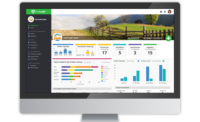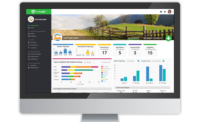FoodLogiQ, LLC, Durham, N.C., and Testo, Inc., Sparta, N.J., announced a partnership to pair the global leader of portable HACCP and Internet of Things (IoT) capabilities with a leader in supplier management, traceability and recall management SaaS platform. The partnership paves the way for an integration between Testo's Saveris Quality Management capabilities and the FoodLogiQ Connect platform.
"Imagine a day when you could be notified electronically when a food product goes out of temperature range anywhere in your supply chain or connect Bluetooth data loggers directly into a traceability platform. That day is today," says Dean Wiltse, chief executive officer of FoodLogiQ. "We are thrilled to be partnering with Testo, a global giant in automated quality management, and look forward to enabling our customers to take full advantage of this partnership."
"It is a truly remarkable time to be at the cross-section of food safety and technology," says Bill Pezza, president of Testo North America. "Testo, together with FoodLogiQ, is innovating the food industry and working to create a safer, more efficient food supply chain around the world. This joint partnership will completely change the way food companies manage their quality and food safety programs."
Industry benefits of the partnership between FoodLogiQ and Testo include:
Fully connected digital HACCP capabilities. The FoodLogiQ-Testo partnership will connect a HACCP-certified measurement data monitoring system with a food safety SaaS platform.
Temperature monitoring and quality notifications. Using Testo temperature probes, food companies can easily measure temperatures and set pre-determined limits for different types of products or locations. When those products go outside those limits, anywhere from the loading dock to the freezer case, FoodLogiQ's platform automatically pushes quality incident notifications to anyone who needs to be informed.
Proactive product movement monitoring. Pairing mobile temperature sensors with traceability data will allow food companies to pinpoint exactly where and when in the chain of custody product goes out of temperature range.







